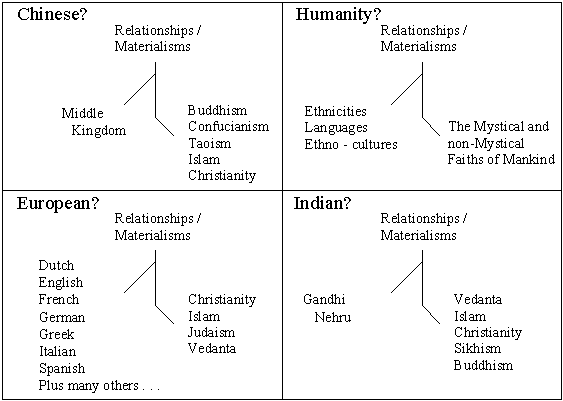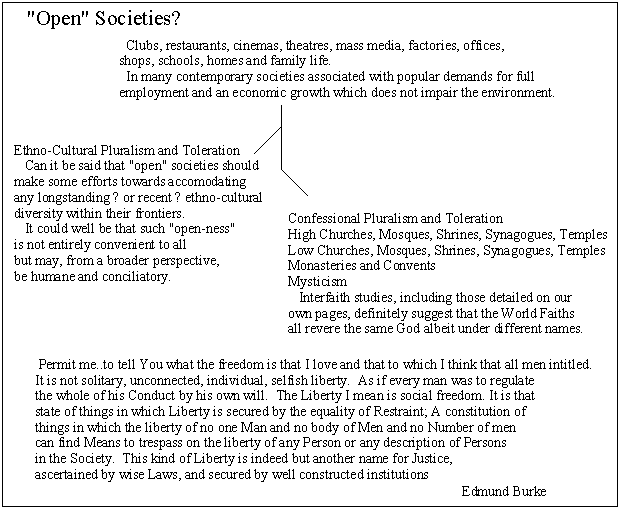Soren Kierkegaard biography
His father was a firmly committed to a strict approach to faith and life and sought to ensure that his family would grow up within a firmly Lutheran household. His father also appears to have been personally endowed with intelligence, imagination, spirituality, melancholy and a tendency towards feeling a strong sense of guilt - amongst his children Soren, at least, inherited all these traits.
He entered the University of Copenhagen in 1830 in order to pursue a course of studies in Theology and Philosophy, his progress towards graduation did not prove to be smooth however as he seems to have experienced deep crises of confidence about spirituality, about his personal growth, and about his future life. During these years he was extensively introduced to such contemporaneously prevailing ideologies as Romanticism and Hegelian philosophy. He allowed his Lutheranism to lapse and led quite an extravagant social life for a time becoming a familiar figure in the theatrical and café society of Copenhagen.
During these years he continued to read very widely in line with his own interests and without seeking to promptly complete his degree. His father died in 1838 and this seems to have been instrumental in causing him to commit to finishing his formal studies and in 1840 was awarded a Magister (Doctoral) degree in Theology.
In September 1840 he became engaged to be married to Regine Olsen, who was then seventeen years old and a daughter of a member of the Danish parliament. In the event, however, he had second thoughts based on his own complex, brooding, personality. Although he had genuine feelings for Regine he seems to have felt that his strong philosophic vocation was too powerful and rendered him unsuitable for married life. He therefore withdrew from the engagement in the autumn of 1841. Regine Olsen later married, happily, elsewhere. His genuine feelings for her led him to specifically mention the whole episode in some of his books - he even, later in life, dedicated all his works to her.
Kierkegaard also chose not to follow another path in life to which he had seemed directed - he decided that he would not put himself forward for ordination as a Lutheran minister. The fact that he had been left fairly well off through the bequests in his father's will allowed him to devote himself to philosophising and to writing.
Kierkegaard's philosophy - existentialism
"...the thing is to find a truth which is true for me, to find the idea for which I can live and die"Søren Aabye Kierkegaard - Journals 1835
He was primarily a philosopher who asked searching questions as to how best, that precious and rare thing, a Human life, ought to be lived. He himself used the terms existential and existentialism in relation to his philosophisings, his heartfelt view was that life, existence, in all its aspects was subjective and ambiguous. Philosophy was seen as an expression of an intensely and courageously examined individual existence - an expression that was, hopefully, free from illusion. In his view individuals must be prepared to defy the accepted practices of society, if this was necessary to their leading, what seemed to that person, to be a personally valid and meaningful life.
In what was perhaps his earliest major work Either / Or (1843) he suggests that people might effectively choose to live within either of two "existence spheres". He called these "spheres" the aesthetic and the ethical.
Aesthetical lives were lives lived in search of such things pleasure, novelty, and romantic individualism. Kierkegaard thought that such "pleasure", such "novelty", and such "romantic individualism" would eventually tend to decay or become meaningless and this would inevitably lead to much boredom and dire frustration.
Ethical lives, meanwhile, as being lived very much in line with a sense of duty to observe societal and confessional obligations. Such a life would be easy, in some ways, to live, yet would also involve much compromise of several genuinely human faculties and potentials. Such compromise would inevitably mean that Human integrity would tend to be eroded although lives seemed to be progressing in a bourgeois-satisfactory way.
What sort of person a person tended to become was very dependent on the life choices they made and the sort of lives they subsequently led. Neither of the "existence spheres" that Kierkegaard believed that he had identified seemed to him to offer fully satisfactory lives to Human beings.
In his later works he suggested that there was a third, religious, "sphere" where people accepted that they could "live in the truth" that they were "individual before the Eternal" to which they belonged. By living in this truth people could achieve a full unity of purpose with all other people who were also, individually, living in the same truth. This is the choice that he made for himself in his own efforts to live a life which he considered to be valid.
In his later years he became involved in controversies with the Lutheran Church in Denmark - he had formed the view that the church was at that time open to being seen as worldly and corrupt and he had made some blatant public criticisms known to all.
By the time of his death in 1855 at the age of forty-two he had produced some thirty books as well as maintaining numerous private journals. This early death is attributed to the intensity of his scholarly efforts and also to the intensity of the controversy with the Danish Lutheran Church.
Kierkegaard's enduring influence was at first largely confined to Scandinavia and to German-speaking Europe, where his work had an impact on Protestant theology and on such writers as the novelist Franz Kafka (1883-1924). After WW1 existentialism was taken up more widely in Europe and the World and his works became increasingly available in translation.
Jean Paul Sartre (1905-1980) was a particularly important contributor to the process of the development and popularisation of a form of existentialism. After the Second World War the atheistic, humanistic, and socialistic, approach to existentialism attributable to Sartre received a cult following amongst a substantial section of the European youth and intelligentsia.
Explore Inner Space!!!

A "Human Tripartism"
Several, authoritative key insights,
(from the Great Faiths, Plato, Socrates, Pythagoras, and Shakespeare!!!),
are available on this site that give convincing support to such a "Tripartite" view of Human Nature!!!

Ralph Waldo Emerson wrote that:-
"...man is a bundle of relations, a knot of roots,
whose flower and fruitage is the world..."
~ Should this be true it would follow that Human Societies often tend to arise out of the Human Condition as directly influenced by Human Nature!

A Societal "Human Tripartism"
This view suggests that "Non-Doctrinaire" Societies themselves!!! often have a Tripartite character.
According to the seriously influential philosopher Immanuel Kant, in his brief work entitled "Idea for a Universal History from a Cosmopolitan Point of View" :-
"Whatever concept one may hold, from a metaphysical point of view, concerning the freedom of the will, certainly its appearances,
which are human actions, like every other natural event, are determined by universal laws. However obscure their causes, history,
which is concerned with narrating these appearances, permits us to hope that if we attend to the play of freedom of the human will
in the large, we may be able to discern a regular movement in it, and that what seems complex and chaotic in the single individual
may be seen from the standpoint of the human race as a whole to be a steady and progressive though slow evolution of its original endowment."
Or to quote Emerson, from his famous Essay ~ History more fully:-
"In old Rome the public roads beginning at the Forum proceeded north, south, east, west, to the centre of every province of the empire, making each market-town of Persia, Spain, and Britain pervious to the soldiers of the capital: so out of the human heart go, as it were, highways to the heart of every object in nature, to reduce it under the dominion of man. A man is a bundle of relations, a knot of roots, whose flower and fruitage is the world. His faculties refer to natures out of him, and predict the world he is to inhabit, as the fins of the fish foreshow that water exists, or the wings of an eagle in the egg presuppose air. He cannot live without a world."
This passage is also to be found in Ralph Waldo Emerson's Essay ~ History:-
"There is one mind common to all individual men....
....Of the works of this mind history is the record. Man is explicable by nothing less than all his history. All the facts of history pre-exist as laws. Each law in turn is made by circumstances predominant. The creation of a thousand forests is in one acorn, and Egypt, Greece, Rome, Gaul, Britain, America, lie folded already in the first man. Epoch after epoch, camp, kingdom, empire, republic, democracy, are merely the application of this manifold spirit to the manifold world."

Or to quote Emerson, from his famous Essay ~ History more fully:-
"In old Rome the public roads beginning at the Forum proceeded north, south, east, west, to the centre of every province of the empire, making each market-town of Persia, Spain, and Britain pervious to the soldiers of the capital: so out of the human heart go, as it were, highways to the heart of every object in nature, to reduce it under the dominion of man. A man is a bundle of relations, a knot of roots, whose flower and fruitage is the world. His faculties refer to natures out of him, and predict the world he is to inhabit, as the fins of the fish foreshow that water exists, or the wings of an eagle in the egg presuppose air. He cannot live without a world."
This passage is also to be found in Ralph Waldo Emerson's Essay ~ History:-
"There is one mind common to all individual men....
....Of the works of this mind history is the record. Man is explicable by nothing less than all his history. All the facts of history pre-exist as laws. Each law in turn is made by circumstances predominant. The creation of a thousand forests is in one acorn, and Egypt, Greece, Rome, Gaul, Britain, America, lie folded already in the first man. Epoch after epoch, camp, kingdom, empire, republic, democracy, are merely the application of this manifold spirit to the manifold world."

